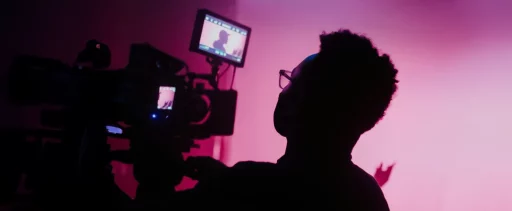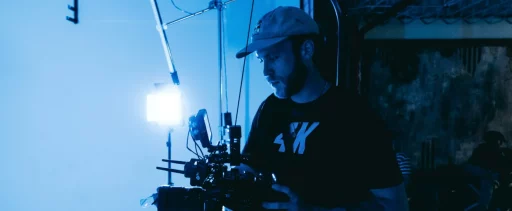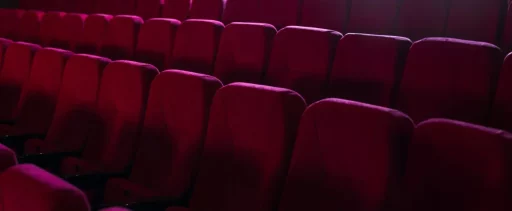In independent filmmaking, talent alone rarely gets a project made. What keeps the industry alive is the connection between storytellers, collaborators, and the communities that support them. Networking in the film industry isn’t about collecting business cards, but rather forming meaningful relationships that sustain creativity and careers over time.
Whether you’re a director fresh out of film school or a cinematographer building your first reel, understanding how to network in the film industry can be the difference between a passion project that stays on a hard drive and one that finds its audience.
Why Networking Matters for Independent Filmmakers
For most independent filmmakers, opportunity comes not from studio systems but from relationships. Alex Ferrari (filmmaker, author of The Rise of the Filmtrepreneur, and host of the Indie Film Hustle podcast) often says that “film is show business,” and both halves matter equally.
His point is simple: the most valuable relationships often start in small rooms, not at big premieres. Networking in this industry shouldn’t be treated like a transaction. Too often, people approach others only when they need something, like a favor, funding, or an introduction. Genuine relationships grow from curiosity and respect, not pressure or self-promotion. The most valuable connections often begin in small, everyday interactions.
Academic research supports this. A 2015 study by Grant Packard and colleagues found that a filmmaker’s success often depends on their embeddedness in professional networks, meaning the depth and diversity of their creative relationships. The more connected a filmmaker is across different parts of the industry (from actors to editors to producers), the more likely their work is to reach audiences.
In short, networking is about building a career ecosystem that grows with you. How do you start?
Finding the Right Networks and Communities
The film world can feel like a maze, especially for newcomers. But the best way to start building relationships is to go where the conversations already happen.
Film festivals are one of the most productive spaces for networking. Small and mid-tier festivals function as “social infrastructures” of cinema, where creative partnerships and new projects are born. These gatherings are where you’re likely to meet the editors, composers, and producers who’ll be working alongside you for years.
You can start locally: attend Q&As, join community film screenings, or volunteer at regional festivals. Many filmmakers who later screen at Sundance or Tribeca began by collaborating with people they met at small-town events.
Beyond festivals, structured spaces like film schools, workshops, and residencies offer curated environments for collaboration. Online platforms, from LinkedIn and Stage 32 to filmmaking groups on Facebook, have also become powerful tools for connection. What matters isn’t the size of the event but your willingness to engage sincerely.
Effective Networking Strategies for Indie Creators
Networking isn’t a one-time effort, it’s a creative practice that takes skill and dedication. Here are strategies that work across the indie film community:
1. Be Prepared to Share Your Work
Keep your portfolio and reel up to date and accessible. In film, opportunity often appears unexpectedly: a conversation at a coffee shop, a message after a panel. Having your materials ready, stored in a convenient way to view quickly, such as a YouTube channel, along with a short and natural elevator pitch, ensures you can make the most of those moments.
For many indie filmmakers, getting their work seen is the hardest part of networking. Submitting your film to platforms like UVOtv can turn your creative effort into ongoing exposure, and that visibility often leads to new collaborations and professional connections. Sign up to be a creator and explore the possibilities today.
2. Leverage Social Media Strategically
Today, meaningful connections are often forged online where collaboration replaces gatekeeping. Instagram remains useful for showcasing visual work, but platforms like LinkedIn and Facebook, and lately Reddit filmmaking groups, are where many collaborations begin. Share updates, comment thoughtfully, and join discussions rather than broadcasting announcements.
Every interaction contributes to your personal brand. In an industry where perception drives opportunity, how you present yourself, both online and in person is part of the work. Digital etiquette —politeness, relevance, and authenticity—goes a long way and still makes you stand out.
3. Connect Beyond Your Field
If you’re a cinematographer, don’t just meet other cinematographers. Reach out to writers, costume designers, and even musicians, since they bring different perspectives and future collaborations. Networks built across disciplines lead to richer projects and more opportunities.
4. Give Back to Your Network
The most sustainable relationships are reciprocal. Check in every few months, share opportunities that might fit others, and make introductions where you can. It’s never it’s who knows you and likes working with you. Naturally, a professional who is easy to work with is more likely to hear back.
5. Take Initiative
If you can’t find networking opportunities, create them. Host small meetups, organize watch parties, or start a local short film showcase. Many indie filmmakers underestimate how powerful grassroots spaces can be. Consistency makes you a connector, someone others turn to when they need collaborators.
6. Treat Networking as a Long-Term Investment
In independent film, relationships grow in value over time. The people you collaborate with on your first short might one day be leading production teams, running festivals, or greenlighting projects of their own. Many filmmakers who start together eventually help one another find work, recommend each other for roles, or team up on new creative ventures.
As Alex Ferrari often says in his Indie Film Hustle podcast, lasting careers are built on consistency. Keeping in touch with your early collaborators, checking in between projects, and celebrating each other’s progress can turn casual contacts into long-term professional allies.

Stories of Success Through Collaboration
The indie world is full of stories where relationships, not budgets, made films possible.
Recent studies also echo this dynamic. Quantifying the Global Film Festival Circuit mapped over 600 international film festivals and found that smaller, community-driven festivals create vital connections across the global film network. These “micro-level” collaborations are what keep the creative ecosystem alive. Here are a few stories to keep your spirit up.
Russo Brothers and Marvel
Their second film, Welcome to Collinwood, already caught the attention of noted director Steven Soderbergh, who was impressed by their ambition and offered to produce the film. They then transitioned to television, directing pilots and episodes of shows such as Arrested Development and Community. While working on Community, the Russos’ episode work caught the attention of Marvel Studios’ president Kevin Feige. One article explains that their work on the show placed them “on the radar” for Marvel.
Their agent informed them: Marvel had a list of roughly ten potential directors for the sequel to Captain America: The First Avenger, and the Russo Brothers were on it. That initial contact preceded them even reading the full script. The rest is history.
The “Movie Brats”
Martin Scorsese became associated with a cohort of young American filmmakers in the late 1960s and early 1970s, often called the “movie brats” (including Brian De Palma, Francis Ford Coppola, George Lucas, and Steven Spielberg). According to multiple accounts, it was Brian De Palma who introduced Scorsese to Robert De Niro. De Palma had worked with De Niro early in his career and brought the actor to Scorsese’s attention. This meeting opened the door to their first major collaboration in the early 1970s and ultimately a long-term creative partnership.
Networking in the Film Industry
Behind the artistry, networking also functions as a form of strategic marketing. Every conversation, appearance, and online post contributes to your public identity as a filmmaker. In indie film, perception creates opportunity long before profit does.
Networking also provides emotional infrastructure, which is often underestimated. The people you meet at mixers or on set often become your long-term support system through rejection, funding struggles, and creative burnout. In an unpredictable industry, these connections become both professional lifelines and personal anchors.
Networking, then, is both creative and commercial. It allows you to build social capital that leads to both artistic collaboration and sustainable careers. And when you’re ready to share your work with the world, platforms like UVOtv give your project a place to live and be seen by over 70 million viewers in North America, offering another dimension to your network: a global audience that’s waiting to discover your story. Simply become a creator today.
FAQ
What Is Networking in the Film Industry?
Networking in the film industry means building genuine relationships with people who share your creative goal from producers and editors to writers and actors. It’s not just about collecting contacts at a networking event, but developing trust and collaboration over time. Whether you’re based in Los Angeles or working on short films elsewhere, networking helps you stay connected to opportunities, talent, and ideas that keep your career moving forward.
How to Network at Film Events?
Be sincere. Attend local film festivals, screenings, and Q&As these are ideal spaces to meet other filmmakers in person. Introduce yourself naturally, ask about others’ projects, and follow up afterward with a quick message on social media or email. Bringing a business card, reel link, or short film trailer makes it easy for people to remember you. The goal is to form long-term connections, not just exchange contact info.
How to Get Connections in the Film Industry?
Combine in-person and online approaches. Join film organizations, workshops, or fellowships, and participate in community-based platforms that connect filmmakers. Online, use social media and professional sites like LinkedIn or Stage 32 to share your work, comment thoughtfully, and join discussions. Collaborating on short films is also one of the best ways to grow your network in the film world — shared projects often turn collaborators into lasting creative partners.





